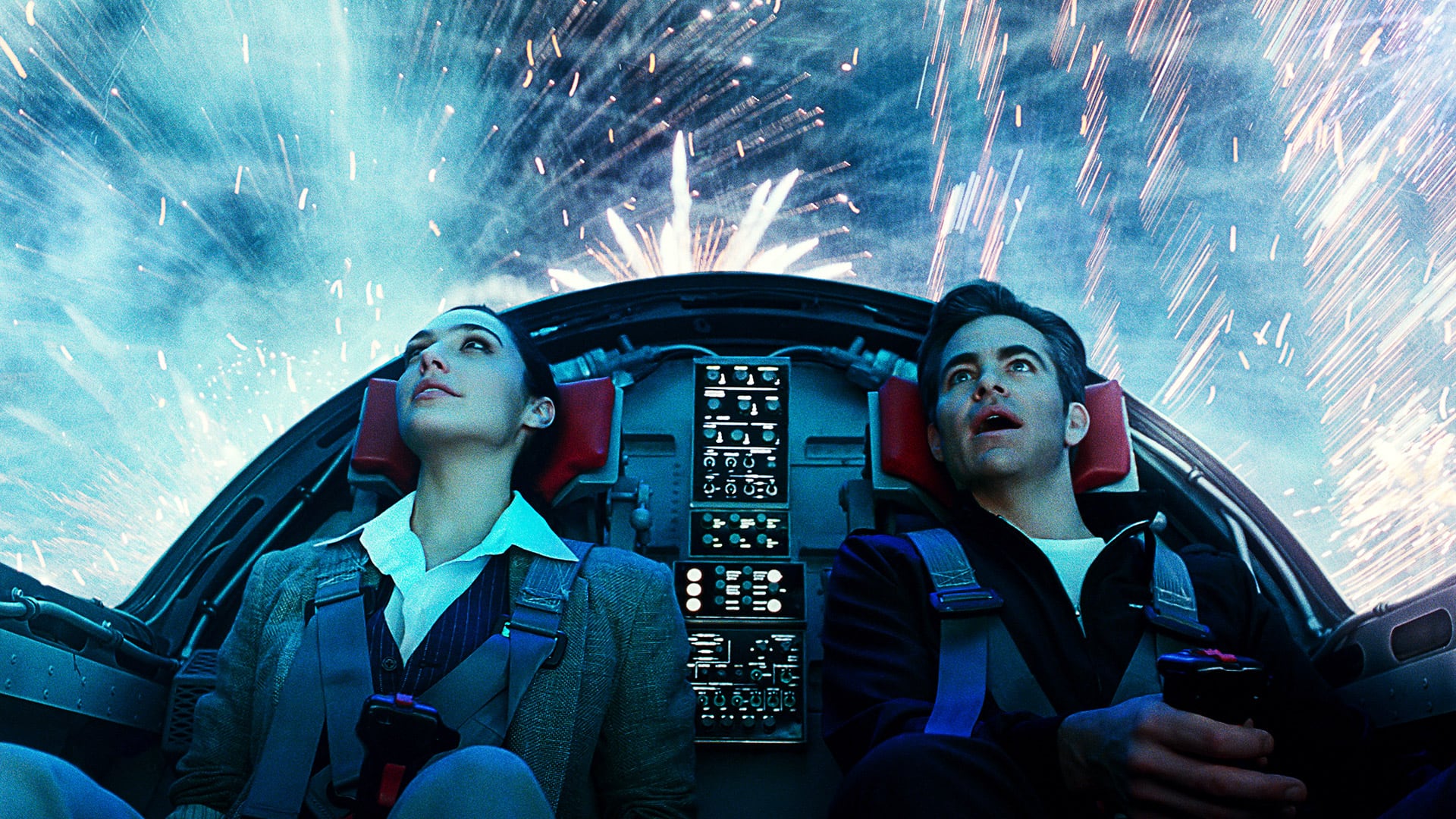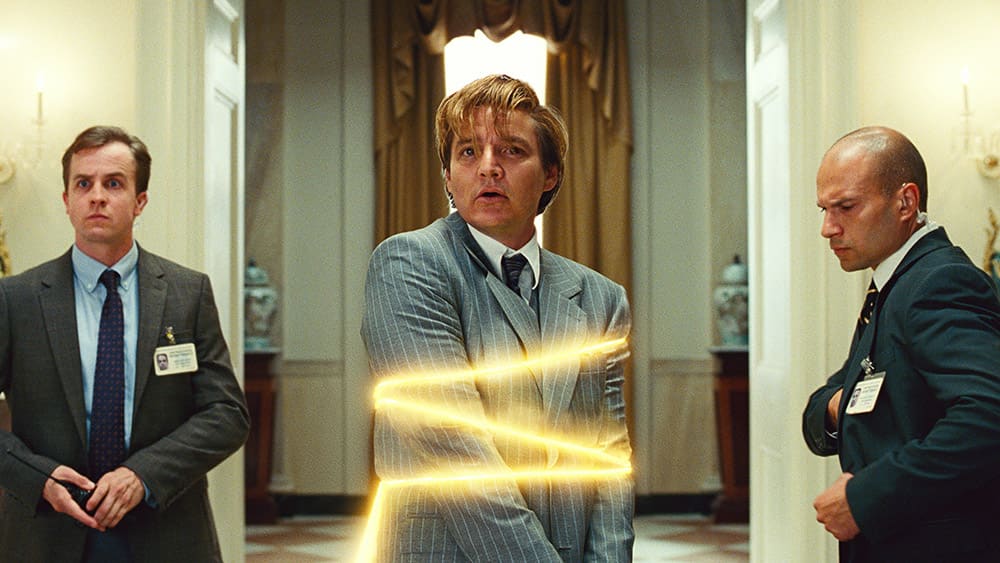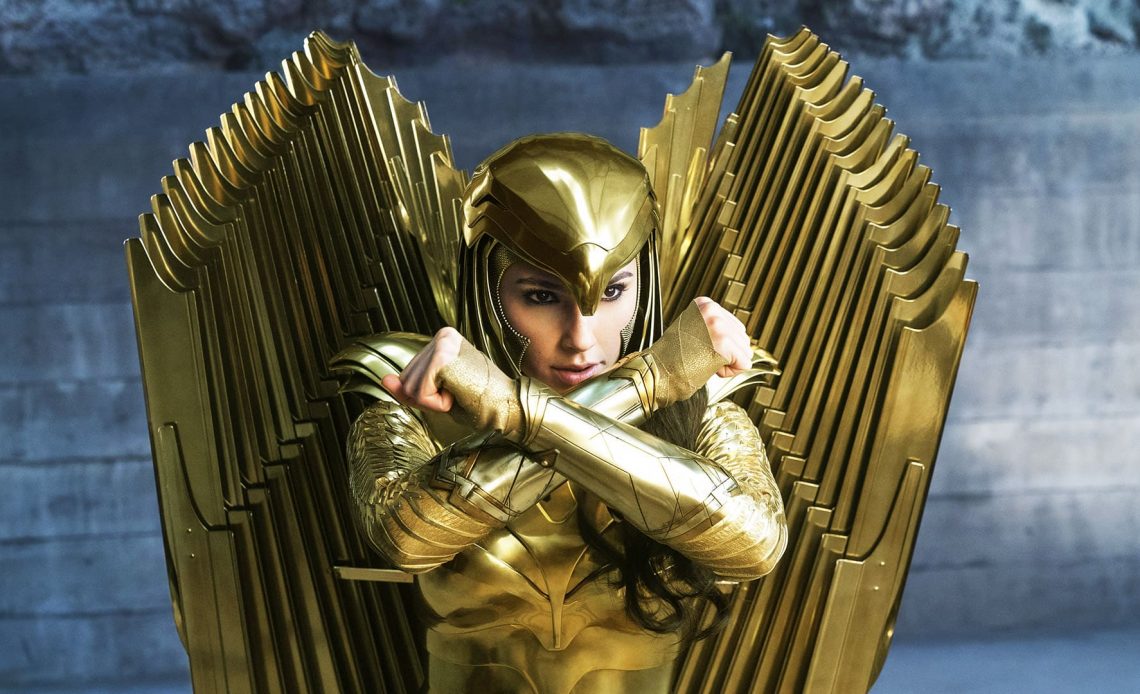Wonder Woman 1984 feels like a superhero movie of the past with a modern polish that tackles universal, timely themes, in one big entertaining package.
Gal Gadot returns as Diana Prince aka Wonder Woman in the follow up to Patty Jenkins’ standout first film from 2017, and this time around, the Amazonian superhero finds herself living a low profile life, working in the Smithsonian museum, and using her powers to fight crime when necessary. She meets Barbara Minerva (Kristen Wiig), a new museum employee who’s tasked with finding out information about a rare artifact that’s landed in their possession. Also after the artifact is celebrity businessman and wannabe oil tycoon Maxwell (Max) Lord (Pedro Pascal), whose charismatic persona allows him to influence those around him.
When it’s discovered that the artifact can grant wishes to those that hold it, Barbara wishes that she could be everything that Diana is, which consequently includes obtaining her superhero powers. Max is on a quest for power and therefore chooses to become the physical embodiment of the artifact, giving him the power to grant wishes at will. Diana, still hung up on the death of her one true love, Steve Trevor (Chris Pine), wishes for his return. All the wishes are granted, but come at the cost of losing something the person treasures the most.

Wonder Woman 1984 is all about the abuse of power, and the consequences that come with it when it falls in the wrong hands. Max Lord’s desire to have what he wants, when he wants, sends him down a path of self-destruction, resulting in a world in ruin. Each wish he grants causes more devastation, leaving the world in a state of chaos. The desire for power for anyone that seeks it is a timely warning of the negative effects such pursuits can have on a person, as well as the effects of those they are responsible for. It’s a theme that doesn’t get old as it’s one that has played out in actual world history many a time.
Despite Max’s villainous tendencies, the filmmakers of Wonder Woman 1984 manage to humanize him by giving him a son that he wants so much to earn the love and respect of. This aspect makes the character more relatable and one that the audience can empathize with, essentially meaning that the film doesn’t give as much of a reason to side with the hero. Likewise, Barbara Minerva, who later becomes the villain Cheetah, is simply an unassuming woman who is often looked past, that’s searching for a human connection in what is portrayed as a male-chauvinistic environment everywhere she goes. Why wouldn’t she want more power to stand up for herself?
What helps to bring the human side out of these villains is the excellent portrayal by Pedro Pascal and Kristen Wiig, both delivering nuanced performances that often overshadow the film’s lead. That’s not to say Gal Gadot delivers any less of her character’s range, but rather, she makes it look so seamless by this stage that her supporting cast need to make the extra effort, and they have done just that. The weakest link of the principal cast is that of Chris Pine and his portrayal of Steve Trevor. There’s nothing wrong with Pine’s performance, but it just felt a bit flat in comparison to his co-stars. Likewise, Steve Trevor’s return didn’t seem too necessary.

Wonder Woman 1984 is full of various themes that different audiences can relate to, giving it broad appeal. That’s pretty standard stuff for modern superhero movie blockbusters these days, though the film could have served its audience better by adding a little more subtlety in its communication of the themes, as it doesn’t allow for much interpretation. The film lays all its thematic cards out on the table, without leaving much to the imagination. It’s a shame because the film has a lot of depth, but just not enough to make it a true standout in this crowded sub-genre of cinema.
Where Wonder Woman 1984 shines is in its ability to give the audience a chance to feel something, and become attached to its character’s journeys. There is also a sense of nostalgia that runs through the film which offers the chance to emotionally connect with it. It’s not just the 1980s production design that transports the audience to a different time and place, but also the film’s tone and traditional storytelling style, similar to that of the classic Christopher Reeve Superman films. There’s a certain tonal sensibility about Wonder Woman 1984 that gives the film a sense of ‘wonder’, thus living up to its namesake. It’s grand storytelling at its finest.
Fun Fact:
Patty Jenkins and Pedro Pascal based Maxwell Lord’s portrayal on stockbroker Gordon Gekko in Wall Street (1987) and Lex Luthor in Superman (1978). Pascal also based his performance on Nicolas Cage.




COMMENTS